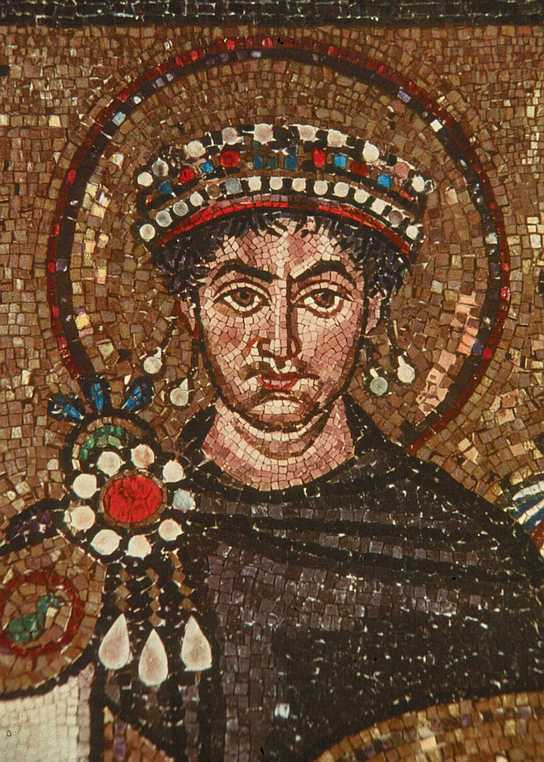Eventlist
Εκδήλωση

- Τίτλος:
- Open Seminar: Art and the Emperor in Early Byzantium
- Πότε:
- 01.04.2015 19.00 h
- Που:
- The Ithacan Philanthropic Society - Melbourne
- Κατηγορία:
- Εκπαίδευση
Περιγραφή
NOTE: This is lecture is on WEDNESDAY AND has a change of venue.
Lecturer: Dr Margaret Riddle
Synopsis:
In the two centuries between the Emperor Constantine I, known to all as "the first Christian emperor", and the so-called 'Golden Age' of the Emperor Justinian I, almost constant theological discussion at many levels of society from baths and beer halls to palaces and church councils had resolved some, but certainly not all, disputes and at least brought a variety of groups nearer to an understanding of what should be regarded as heretical.
Meanwhile, a huge building program by Constantine and to a lesser extent the emperors who followed him, ensured that architectural forms and art works were developed to serve the new religion. Both architecture and art in the early Christian world borrowed extensively from what had gone before, using forms and ideas familiar from the Hellenistic past to tell the new Christian story. For instance, the image of Christ in Majesty, can be seen as a borrowing from the realm of pre-Christian imperial art: the power and might shown in images of the Roman Emperor makes an excellent foundation for the portrayal of Christ as Lord of All. Building on a multitude of images familiar in the pagan world, Christian artists developed an impressive vocabulary of Christian art to decorate and add layers of meaningful religious messages to churches. The emphasis might be characterised in a general sense as triumphant, with Christ as Teacher, Shepherd, and in Majesty as Saviour, supported by a program of Old and New Testament scenes designed to show how Christ and the New Testament fulfilled the promise of the Old.
Scholars such as Averil Cameron have pointed to a noticeable change happening in the years following Justinian I – the late 6th, early 7th century, suggesting a move toward a more fearful, repressive understanding of Christianity permeating all levels of society and encompassing the relationship between Emperor and subjects. In art historical terms, this change might be glibly characterised as the difference between Christ the Good Shepherd and The Pantocrator, Lord of All.
More recently, pointing to an incredible succession of catastrophes that beset the Byzantine empire in the second quarter of the 6th century, Roger Scott has argued that the change toward a more recognizably Byzantine society comes in the reign of Justinian (Emperor from 527 to 565). Even in the very early years of his reign, despite major achievements such as the building of Hagia Sophia and the Codification of the Law, Scott argues that many aspects of his reign reveal a new understanding of a Christian world ruled by an 'Old Testament' God of fear and awe, with the Emperor as His viceroy righteously using the same dynamic as a guiding principle for good government on earth. The Emperor's paramount duty is now to safeguard the world from catastrophe and heresy, with a piety expressed through repression and fear.
It is with these arguments in mind that the talk will look at the way that the image of Christian emperors was presented before Justinian and whether there are possible signs of a new mentality during Justinian's reign.
Bio:
 Margaret Riddle is a former senior lecturer and head of the Department of Fine Arts at the University of Melbourne, where her special areas of teaching and research interest were the art and history of the Late Antique and Byzantine periods. After an enforced absence of more than two decades from the academic world to attend to the family business, she is welcoming the opportunity to become immersed again in the intriguing and often unanswerable questions that history presents. She finds it a far more interesting pursuit than contemplating the uncompromising bottom line of a balance sheet.
Margaret Riddle is a former senior lecturer and head of the Department of Fine Arts at the University of Melbourne, where her special areas of teaching and research interest were the art and history of the Late Antique and Byzantine periods. After an enforced absence of more than two decades from the academic world to attend to the family business, she is welcoming the opportunity to become immersed again in the intriguing and often unanswerable questions that history presents. She finds it a far more interesting pursuit than contemplating the uncompromising bottom line of a balance sheet.
Margaret Riddle is a former senior lecturer and head of the Department of Fine Arts at the University of Melbourne, where her special areas of teaching and research interest were the art and history of the Late Antique and Byzantine periods. After an enforced absence of more than two decades from the academic world to attend to the family business, she is welcoming the opportunity to become immersed again in the intriguing and often unanswerable questions that history presents. She finds it a far more interesting pursuit than contemplating the uncompromising bottom line of a balance sheet.
Sponsors:
Our sincere thanks to: Jim Bossinakis for sponsoring this seminar.
During the course of the year considerable expenses are incurred in staging the seminars. In order to mitigate these costs individuals or organisations are invited to sponsor a lecture of their choice. Please email: Αυτή η διεύθυνση ηλεκτρονικού ταχυδρομείου προστατεύεται από κακόβουλη χρήση. Χρειάζεται να ενεργοποιήσετε την Javascript για να τη δείτε. or call 03 9662 2722.
You too can sponsor one or more seminars and (optionally) let your name or brand be known as a patron of culture to our members, visitors and followers, as well as the broader artistic and cultural community of Melbourne.
We also thank the seminars' corporate sponsors:

Τόπος διεξαγωγής
- Venue:
- The Ithacan Philanthropic Society - Διαδικτυακός τόπος
- Οδός:
- Level 2, 329 Elizabeth Street
- ΤΚ:
- 3000
- Πόλη:
- Melbourne
- Νομός:
- VIC
- Χώρα:
-

In October 1916, the Ithacan migrants of Melbourne established the ITHACAN PHILANTHROPIC SOCIETY "The Ulysses", with an inaugural membership of some 153 members. This was in response to pleas for aid from their loved ones in Ithaca who were suffering deprivation during the First World War.
Over the years, however, the Society has been much more than just a philanthropic institution. It has been a constant in the lives of the early Ithacan migrants replacing the homeland which they had left.
The Society takes an active role in the cultural, social, educational and quality of life interests of the Ithacan Community. The Society, as part of its philanthropic role, also makes many monetary contributions to worthy causes, including those outside the immediate Ithacan community. The Society celebrated its 90th Anniversary in 2006.
EventList powered by schlu.net

